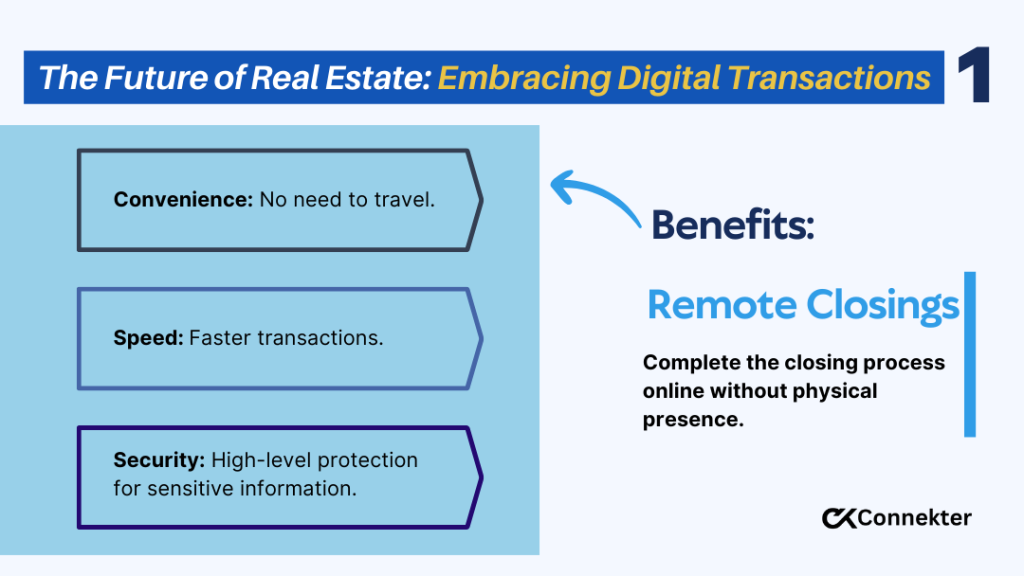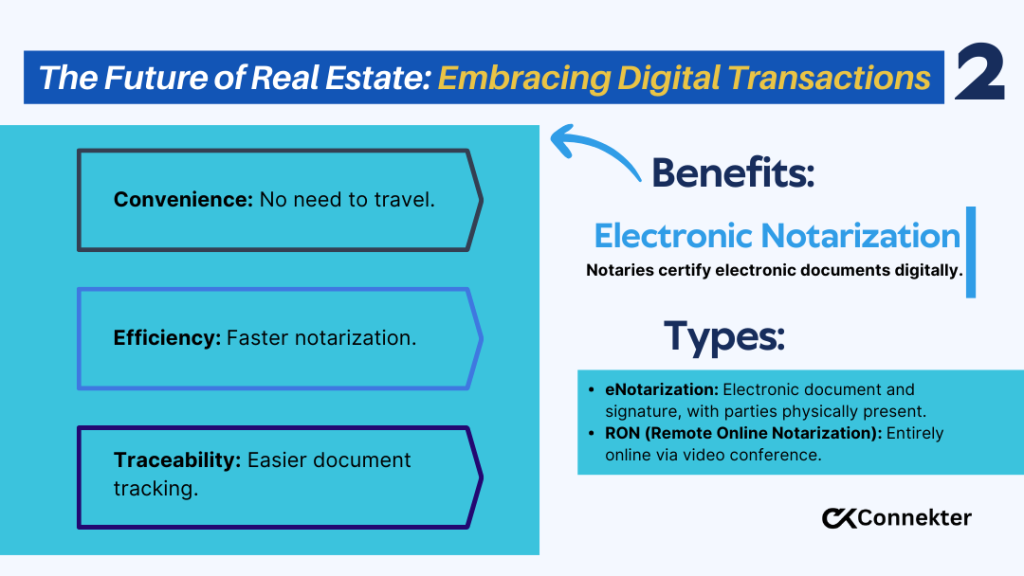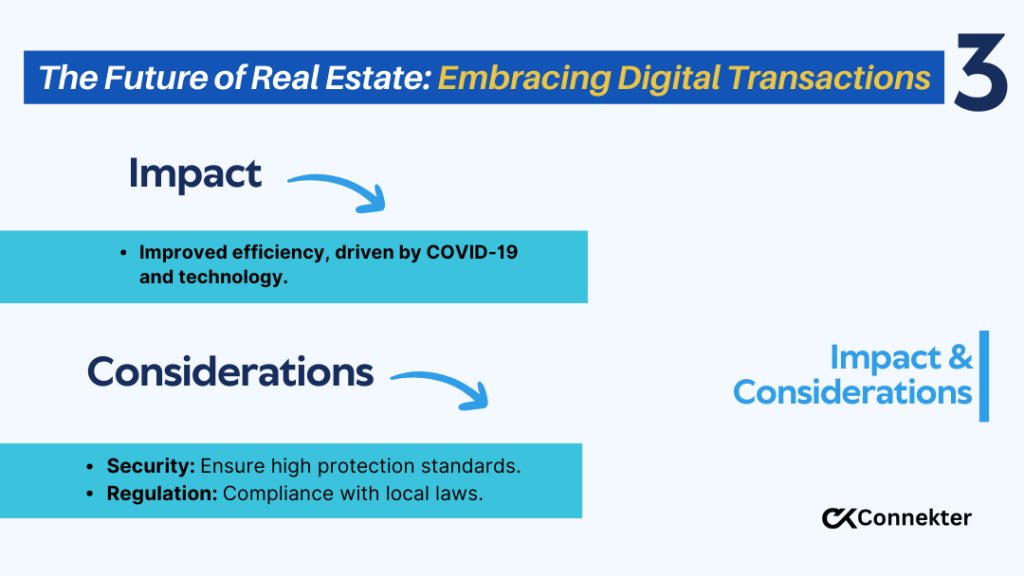
The Future of Real Estate: Embracing Digital Transactions for Remote Closings and Electronic Notarization
Since starting my career as a realtor in 2002, I have witnessed a monumental transformation in the way real estate transactions are conducted. Back in the day, signing documents and closing deals required lengthy in-person meetings, a time-consuming process often fraught with complications.
However, the digital revolution has changed all of this, especially after the COVID-19 pandemic in 2020. Technology has driven efficiency, security, and convenience, allowing transactions to be conducted remotely. In this article, we’ll explore the rise of remote closings and electronic notarization in the United States and Canada, and how these innovations are reshaping our industry.
Remote Closings
Definition and Process
Remote closings are a revolutionary advancement in real estate. Instead of requiring the physical presence of all involved parties, we can now complete the closing process online. This includes signing documents through electronic platforms, secure video conferencing, and cloud document storage.
Benefits
- Convenience: Buyers and sellers can complete transactions from anywhere, eliminating the need for travel.
- Speed: By reducing the time needed to coordinate and finalize transactions, remote closings significantly speed up the process.
- Security: Electronic signature platforms use high levels of security and authentication, protecting sensitive information.

Electronic Notarization
Definition and Process
Electronic notarization is another crucial component in the digitization of real estate transactions. This process allows a notary public to certify the authenticity of electronic documents using digital tools.
Types:
- eNotarization: Both the document and the signature are electronic, but the notary and signer are physically present.
- RON (Remote Online Notarization): Notarization is done entirely online through video conferencing.
Benefits
- Accessibility: Allows parties to access notary services without the need to travel.
- Efficiency: Speeds up the notarization process, eliminating wait times and travel.
- Traceability: Electronic records make it easier to track and securely store documents.
.
Regulations in the United States and Canada. Digital transactions in real estate

United States
In the United States, RON is legal in several states, with specific regulations ensuring the process’s validity and security. The COVID-19 pandemic has accelerated its adoption. Some states that have adopted these practices include:
- Arizona
- California
- Colorado
- Florida
- Idaho
- Indiana
- Iowa
- Kentucky
- Maryland
- Minnesota
- Montana
- Nevada
- North Carolina
- Ohio
- Oklahoma
- Oregon
- Pennsylvania
- South Dakota
- Texas
- Virginia
- Washington
For more information on regulations in each state, you can refer to the following resources:
- National Notary Association (NNA) – Electronic Notarization Guide
- American Land Title Association (ALTA) – Remote Online Notarization (RON) Resource Center
- Mortgage Bankers Association (MBA) – Remote Online Notarization (RON) Overview
Canada
In Canada, the adoption of electronic notarization and remote closings varies by province. Some provinces are more advanced in implementing these technologies than others. Resources for more information include:
- Law Society of Ontario – Electronic Signatures and Remote Commissioning
- Notaries Public in British Columbia – Remote Notarization Guidelines
- Law Society of British Columbia – Guidelines for Remote Notarization
Courses and Training. Digital transactions in real estate
For those interested in deepening their knowledge and skills in electronic notarization and remote closings, several courses and training programs are available:
- National Notary Association (NNA):
- American Land Title Association (ALTA):
- Mortgage Bankers Association (MBA):
Impact on the Real Estate Market

Adoption by Companies
Many real estate companies and technology platforms have adopted digital solutions to improve the customer experience and streamline processes.
Innovation and Competition
Digitization has fostered innovation, with the development of new tools and services that enhance efficiency and transparency.
COVID-19 Pandemic
The pandemic has accelerated the adoption of digital transactions due to mobility restrictions and the need for social distancing.
Considerations and Challenges
Security and Privacy
It is crucial that platforms comply with high security standards to protect sensitive information.
Regulation and Compliance
Companies must be aware of local regulations and ensure compliance with all applicable laws.
Education and Adaptation
Both industry professionals and clients need to familiarize themselves with these new technologies and processes to maximize their benefits.
Conclusion
Adapting to new technologies isn’t always easy, especially for those of us who have worked in the real estate industry for decades. However, the advantages offered by remote closings and electronic notarization are undeniable.
As a realtor with 20 years of experience, I have seen how these innovations not only simplify the buying and selling process but also offer unprecedented security and convenience. I encourage all my colleagues and clients to explore these technologies and take advantage of their benefits.
If you would like to discuss how these innovations can benefit your real estate transactions or learn more about our services, please feel free to contact me. I am here to help you navigate this new digital landscape with confidence and success.

